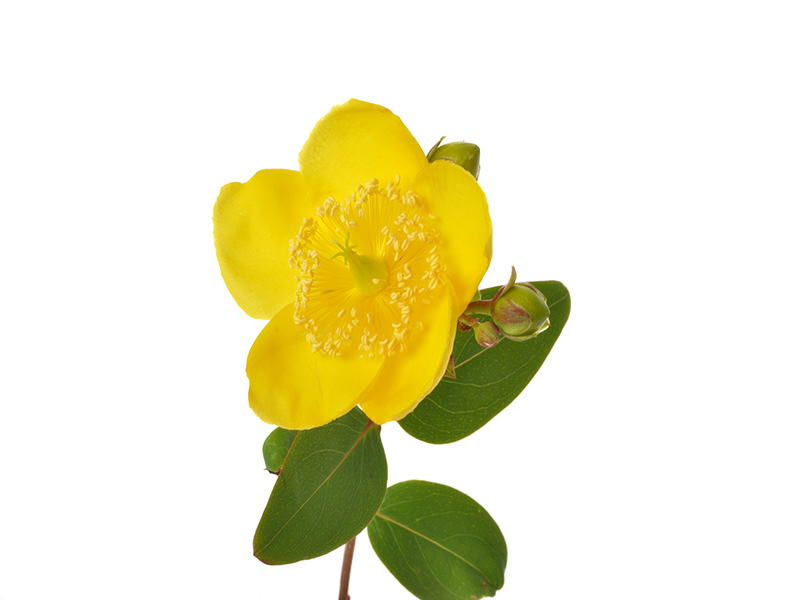Hypericum perforatum, St. John’s Wort
The St. John’s Wort plant is one of the most popular medicinal herbs in the world. It is widely used for the treatment of depression and other mental health problems. It is also known to help improve sleep. This plant contains a substance called hypericin, which is a natural antidepressant. Hypericin prevents the reuptake of serotonin, dopamine, and norepinephrine in the brain. These substances are important for mood regulation. The plant also contains other substances that can help improve sleep, such as hyperforin and phytosterols. Research shows that hypericin can help treat insomnia. With all this support, this plant can be supplemented and help with sleep quality and duration.
- Origin: Plant Based
- Source: Itself
- Type: Herbs, Roots & Barks
- Age Range: Adults, Seniors
- Toxicity: May be toxic in high doses
- Outcomes: Anxiety, Depression

What are St. John’s Wort benefits?
The st-johns-wort is a plant that can be used to treat insomnia. It helps induce sleep and can be an effective treatment for insomnia. In addition to helping treat insomnia, st-johns-wort can also help treat other health problems, such as depression, anxiety, and stress.
Table of relations
St. John’s Wort and Anxiety
Anxiety is the body's natural response to stress. It's a feeling of fear or apprehension about what's to come. It can be triggered by a specific situation and not last long - which is very common and ok - or it can be a generalized disorder (which is considered a illness) that can bring harm to everyday life and also cause other conditions like depression.
St. John’s Wort and Depression
Depression is a chronic and recurrent psychiatric condition that produces mood changes characterized by deep sadness, mood swings, loss of interest in activities, causing significant impairment in daily life.
Table of negative interactions
Related videos about St. John’s Wort
References
The St. John’s Wort plant is one of the most popular medicinal herbs in the world. It is widely used for the treatment of depression and other mental health problems. It is also known to help improve sleep. This plant contains a substance called hypericin, which is a natural antidepressant. Hypericin prevents the reuptake of serotonin, dopamine, and norepinephrine in the brain. These substances are important for mood regulation. The plant also contains other substances that can help improve sleep, such as hyperforin and phytosterols. Research shows that hypericin can help treat insomnia. With all this support, this plant can be supplemented and help with sleep quality and duration.
